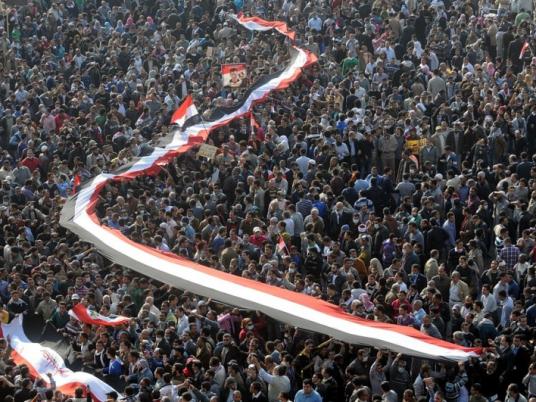
The Muslim Brotherhood’s mouthpiece Freedom and Justice daily claims that informed sources have pointed to outgoing Finance Minister Hazem al-Beblawy as the most likely to head the new cabinet. Yet Beblawy, who is quoted in the same the report, said that Egypt’s military rulers have not discussed the matter with him, ruling out the possibility that he is on their short list to lead the next government. If they he is asked to do so, Beblawy said, he would think thoroughly before accepting the position given “the current bad situation and the confusion that mars the political scene in the country.”
State-owned Al-Akhbar suggests other likely candidates, including former International Atomic Energy Agency (IAEA) Director Mohamed ElBaradei, law professor Hossam Issa, activist Abdel Gelil Mostafa and former Prime Minister Kamal al-Ganzoury. The paper reports that Issa said no one has contacted him about the possibility of leading a new cabinet to replace that of Prime Minister Essam Sharaf. Issa is also reported as saying the new cabinet should include all political forces. The Supreme Council of the Armed Forces (SCAF) has not approached ElBaradei, according to an anonymous representative of his campaign quoted in the article. The source tells Al-Akhbar that the Nobel laureate and presidential hopeful had earlier expressed his willingness to give up his campaign if he could better serve Egypt by leading a transition government.
Leftist party paper Al-Wafd dedicates a full page to analyzing the roots of the ongoing standoff between revolutionary forces in Tahrir Square and the military. Under the headline, “SCAF mistakes that ignited the second revolution,” the paper blames the council for failing to build bridges with revolutionary forces and focusing only on “striking a deal” with the Brotherhood, the nation’s most organized political group. The SCAF thought this deal would help it control the streets, according to Al-Wafd. The paper says the SCAF’s second mistake is its failure to deliver on its promises.
“It promised to hand over power to a civilian government in six months but it stayed in power for nine months without making any changes,” writes the paper. “It promised not to shoot at Egyptians, however, it ran them over in Maspero and killed them in Tahrir.”
“It promised to safeguard the civil nature of the state but it handed Egypt and its constitution over to Islamists,” adds the paper.
The Freedom and Justice daily defends the Muslim Brotherhood against the heavy criticism the group is facing for not joining the Tahrir protests. Editor-in-Chief Adel al-Ansary devotes his column to explaining the reasons behind the decision. Like the group’s leaders, he says that their participation in big numbers would have exacerbated the standoff between police and protesters and led to more violence.
Privately owned Al-Shorouk says that the group’s decision has sparked anger within its own ranks as many young brothers have already defied their leaders to take to Tahrir. Mohamed al-Betagy, a prominent leader in the group, also opposed the decision and threatened to resign, according to Al-Shorouk.
While those in Tahrir are standing their ground and rejecting Field Marshal Hussein Tantawi’s speech, Justice Tarek al-Bershy is quoted on Al-Shorouk’s front page praising the speech and arguing that it draws a roadmap for the rest of the transitional period. Bershy, who was appointed by the SCAF in February to amend the old constitution, called on protesters to “react positively” to Tantawi’s statement. In the meantime, he said that the Tahrir incidents should be investigated, according to Al-Shorouk.
The paper also quotes a press release by Wafd Party leader Al-Sayyed al-Badawy regarding a phone conversation he had with armed forces Chief of Staff Sami Anan. In the exchange, Anan reportedly affirmed that the SCAF is working on ending the violence and forming a national salvation government. Anan had also said that all protesters detained during the ongoing violence have been released, according to Al-Shorouk.
Egypt's papers:
Al-Ahram: Daily, state-run, largest distribution in Egypt
Al-Akhbar: Daily, state-run, second to Al-Ahram in institutional size
Al-Gomhurriya: Daily, state-run
Rose al-Youssef: Daily, state-run
Al-Dostour: Daily, privately owned
Al-Shorouk: Daily, privately owned
Al-Wafd: Daily, published by the liberal Wafd Party
Youm7: Daily, privately owned
Al-Tahrir: Daily, privately owned
Freedom and Justice: Daily, published by the Muslim Brotherhood's Freedom and Justice Party
Sawt al-Umma: Weekly, privately owned
Al-Arabi: Weekly, published by the Nasserist Party




